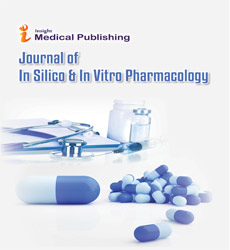Abstract
Testing the two-hit hypothesis of Alzheimer disease: cell cycle re-entry
The two-hit hypothesis of Alzheimer suggests cell cycle entry is a major factor in driving neuronal death in Alzheimer’s disease (AD). We experimentally addressed this issue by driving c-myc expression specifically in neurons with an inducible cam-kinase promoter. We confirmed that c-myc was specifically inducible in large cortical/hippocampal neurons. We found expression of c-myc led to histone phosphorylation, DNA fragmentation (TUNEL), gliosis, and neuronal death. The effects were specific to brain areas of increased expression and did not involve the cerebellum. Consistent with neuronal specificity, behavior analysis showed the deficits were cognitive rather than motor function. These findings support cell cycle re-entry as a critical hit of the two-hit hypothesis of AD and point to the attractiveness of intervention to modify neuronal cell cycle re-entry as a therapeutic target.
Author(s): George Perry
Abstract | Full-Text | PDF
Share this

Google scholar citation report
Citations : 203
Journal of In Silico & In Vitro Pharmacology received 203 citations as per google scholar report
Journal of In Silico & In Vitro Pharmacology peer review process verified at publons
Abstracted/Indexed in
- Google Scholar
- China National Knowledge Infrastructure (CNKI)
- WorldCat
- Publons
- International Committee of Medical Journal Editors (ICMJE)
- Secret Search Engine Labs
Open Access Journals
- Aquaculture & Veterinary Science
- Chemistry & Chemical Sciences
- Clinical Sciences
- Engineering
- General Science
- Genetics & Molecular Biology
- Health Care & Nursing
- Immunology & Microbiology
- Materials Science
- Mathematics & Physics
- Medical Sciences
- Neurology & Psychiatry
- Oncology & Cancer Science
- Pharmaceutical Sciences

